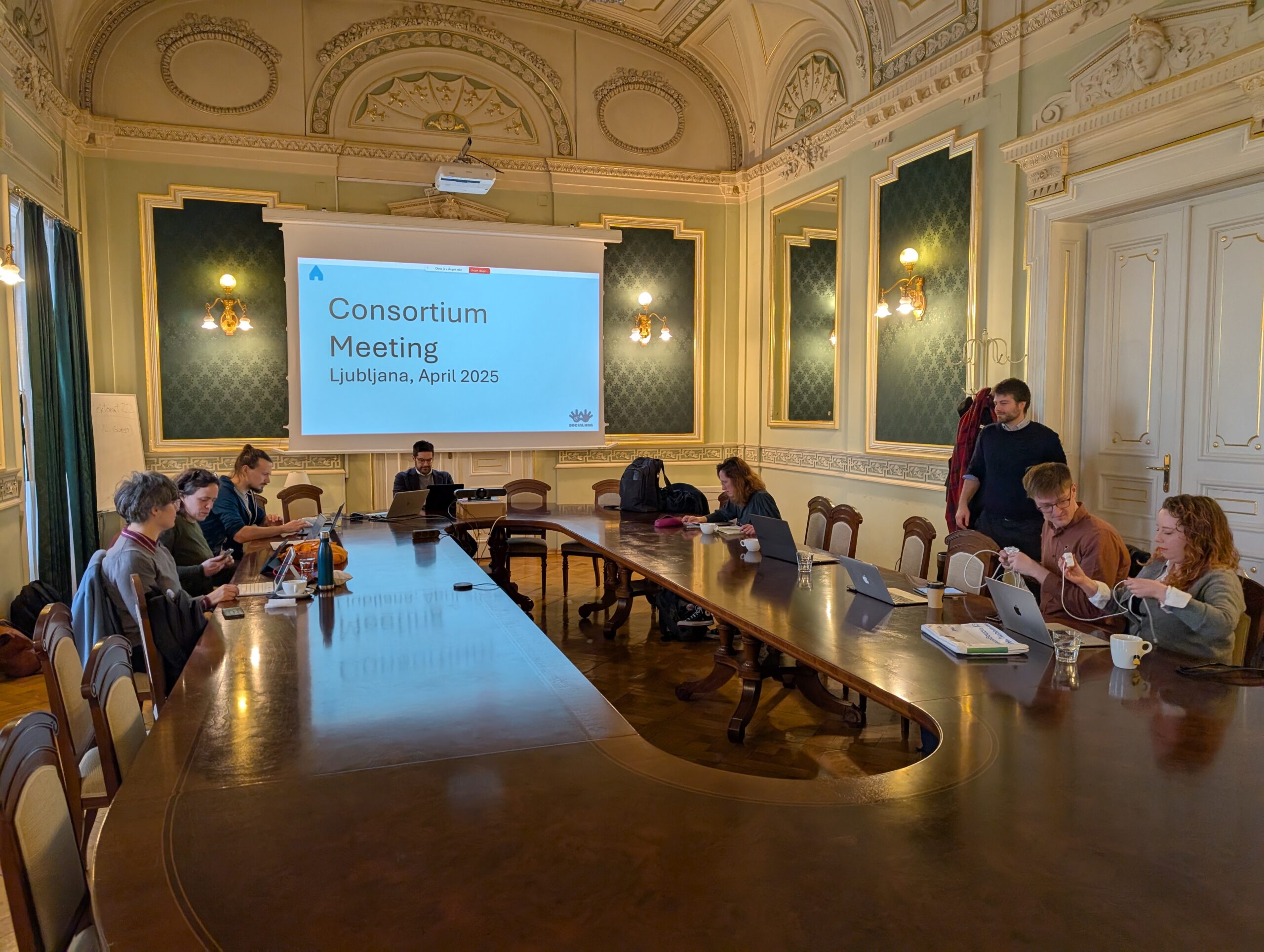04.04.2025
SOCIALNRG Consortium Meeting in Ljubljana: Empowering Vulnerable Households Through Community Energy
Renewable Energy Communities (RECs) are becoming a more established concept and practice in the EU’s efforts to decarbonise and decentralise the energy system. But have community energy initiatives truly succeeded in addressing energy poverty and involving energy-vulnerable households?
That’s the question at the heart of the SOCIALNRG project, funded by the EU LIFE CET programme. Our goal is to reimagine the community energy model for the social, cooperative, and public housing sectors, where low-income households are often most affected by energy poverty. We aim to promote sustainability, reduce energy costs, and empower vulnerable households.
On 1 and 2 April, nine partner organisations from Belgium, Italy, and Slovenia gathered in Ljubljana for the project’s 2nd Consortium Meeting. It was hosted by the Slovenian partners: Focus Association for Sustainable Development, Stanovanjsko podjetje Ravne na Koroškem, and IRI UL. Even though the project is still in its early stages, we’ve already seen meaningful progress and also encountered some important challenges.
The first day of the meeting focused on reviewing the progress made in the first six months and planning the next steps. In terms of progress, we have done good work on characterizing how energy poverty manifests in our three pilot communities – Mechelen (BE), Cinisello Balsamo (IT), and Ravne na Koroškem (SI). Another successfully pursued priority was to assess residents’ readiness to take part in energy community initiatives promoted by our project. This work, led by IRI UL, combined a range of methods: a questionnaire, semi-structured interviews, participant observation, and focus groups. These activities helped uncover everyday experiences, expectations, and needs of vulnerable residents in our pilot sites. In terms of planning, essential insights derived from these outcomes now steer the ongoing co-creation process through which we engage vulnerable households in development of SocialNRG pilot RECs and other solutions.
Based on the initial research, we realized that established definitions of energy poverty and vulnerability do not seem to capture many of the significant nuances of everyday life experienced by vulnerable households in our pilot sites. This leads us to question – how can we grasp energy poverty or vulnerability in practice if we wish to address the issue adequately and effectively? Furthermore, how can we meaningfully engage people who deal with material deprivation daily, which limits their capacity to get involved in activities they might find difficult to understand or non-essential with respect to their immediate everyday-life contexts? One thing, however, is already clear: our three pilot sites have substantially different socio-economic realities. While this poses a challenge for the project team, it also implies potential for scalable and transferable solutions across diverse contexts.
The second day was dedicated to field trips. We spent the first half on a site visit to Novo Brdo, an exemplary urban development built by the Housing Fund of the Republic of Slovenia and the City of Ljubljana’s Public Housing Fund. From high representatives of these institutions, we learned how each of them contributes towards creating an equitable and healthy housing market in Ljubljana and the wider national context. We also heard from a representative of the Eco Fund (Slovenian Environmental Public Fund) on how energy poverty is systematically addressed through dedicated national subsidies and funding schemes, such as Zero500. Finally, a representative of Renov-AID project presented progress on the development of One Stop Shops for integrated building renovation services in three major Slovenian municipalities – Ljubljana, Kranj and Velenje.
For the second part of the day, we visited a recently established energy community in a housing block on Smoletova Street – an inspiring example of a pioneering bottom-up initiative driven by residents with support of their housing manager, Stanovanjsko podjetje Ljubljana (SPL). Their story gave us valuable insights into what it takes to make such initiatives successful, including the importance of ‘local heroes’ who mobilise their neighbours and lead their communities in direction of energy transition.
There’s more to come soon from SOCIALNRG, so stay tuned for updates – and in the meantime, follow us on LinkedIn and check out the project website to learn more.


